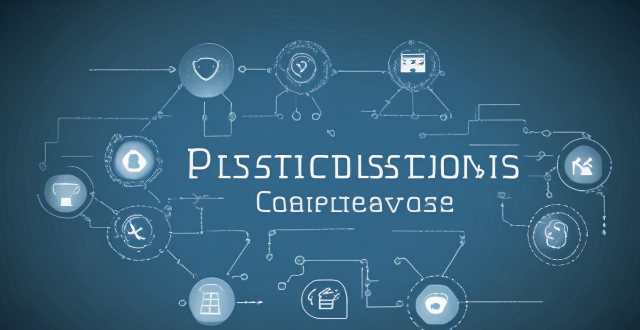The text discusses the potential negative consequences of rapid economic recovery, which include inflation and price distortions, unemployment and labor market disruptions, environmental impact, financial instability and bubbles, and income inequality. It emphasizes the importance of considering these consequences and taking steps to mitigate them through sustainable growth policies, addressing labor market disruptions, protecting the environment, ensuring financial stability, and reducing income inequality.

Potential Negative Consequences of Rapid Economic Recovery
Rapid economic recovery can have several potential negative consequences that need to be considered. These include:
1. Inflation and Price Distortions
A rapid economic recovery often leads to increased demand for goods and services, which can result in inflation. This means that the prices of goods and services may rise, making it more expensive for consumers to purchase them. Additionally, price distortions can occur when certain industries experience faster growth than others, leading to an imbalance in the economy.
2. Unemployment and Labor Market Disruptions
While a rapid economic recovery may create new jobs, it can also lead to labor market disruptions. For example, some industries may experience rapid growth while others may struggle to keep up, resulting in unemployment or underemployment for workers in certain sectors. This can lead to social unrest and inequality.
3. Environmental Impact
Rapid economic recovery often requires increased production and consumption of resources, which can have negative environmental impacts. This includes increased carbon emissions, deforestation, and pollution. Without proper regulations and sustainable practices, rapid economic growth can exacerbate climate change and other environmental issues.
4. Financial Instability and Bubbles
A rapid economic recovery can also lead to financial instability and bubbles. As demand for investments increases, asset prices may become inflated, leading to speculative behavior and potential crashes. This can have significant impacts on investors and the overall economy.
5. Income Inequality
Finally, rapid economic recovery can exacerbate income inequality if not managed properly. Those who benefit from the recovery may see significant gains in wealth, while those who are left behind may struggle to keep up. This can lead to social unrest and political instability.
In conclusion, while rapid economic recovery can bring many benefits, it is important to consider the potential negative consequences and take steps to mitigate them. This includes implementing policies that promote sustainable growth, addressing labor market disruptions, protecting the environment, ensuring financial stability, and reducing income inequality.